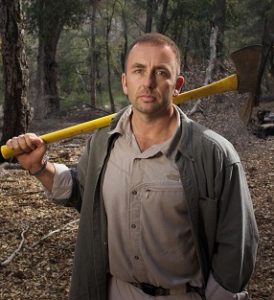
President
Mark Hoddle
Department of Entomology
University of California-Riverside
Riverside, CA, USA
mark.hoddle@ucr.edu
Expertise: My research is primarily involved in the identification of pest problems where biological control could be a successful approach. The location, release and evaluation of natural enemy impacts on population
growth features strongly in my research. The evaluation of biological control agents are conducted primarily in the field and, when necessary, aspects of both pest and natural enemy biology and behavior are studied in the laboratory.
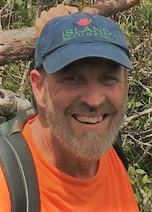 Vice President
Vice President
Don Weber
Invasive Insect Biocontrol & Behavior Laboratory
USDA-ARS
Beltsville, MD, USA
don.weber@ars.usda.gov
Expertise: My research focus is insect ecology with a commitment to improvement of pest management. This effort involves the evaluation of environmentally-friendly tactics such as native biological controls, deployment of aggregation pheromones, and changes in cultural practices, and emphasizes solutions for small farms and gardens in urban agriculture. My research program focuses on vegetable pests including true bugs such as harlequin bug, brown marmorated stink bugs, and leaf beetles, such as cucumber beetles and Colorado potato beetle.
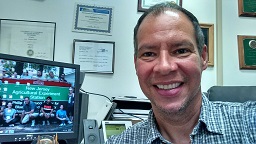
Past-President
Cesar Rodriguez-Saona
Philip E. Marucci Blueberry and Cranberry Research Center
Rutgers University
Chatsworth, NJ, USA
crodriguez@aesop.rutgers.edu
Expertise: My research involves the development and implementation of cost-effective and reduced-risk IPM practices for blueberries and cranberries that are compatible with biological control agents. My approach integrates chemical, behavioral, and biological methods in insect control to gain a better understanding of the ecology of pests and their natural enemies. My extension program delivers current and critical IPM information to growers.
 Secretary Treasurer
Secretary Treasurer
Ricky Lara
University of California, Riverside
Riverside, CA, USA
jlara007@ucr.edu
Expertise: My research addresses the development and improvement of biological control programs for invasive species in the U.S., primarily those that are problematic in agricultural systems. I have been involved with foreign exploration for natural enemies of target pests, conducting natural enemy host-specificity testing in quarantine, and optimizing pest sampling methods. My current work is focused on the brown marmorated stink bug and other related pentatomids.
 Corresponding Secretary
Corresponding Secretary
Rob Morrison
USDA-ARS Center for Grain and Animal Health Research
Manhattan, KS, USA
william.morrison@usda.gov
Expertise: My research aims to develop behaviorally- and biologically-based, reduced-risk IPM tactics to improve management of insects for stored products after harvest. Current research interests include examining the behavior, chemical ecology, biological control, and IPM of stored product insects in the US and abroad. Overall, the goal is to improve the sustainability of post-harvest agricultural IPM programs by reducing insecticide inputs.
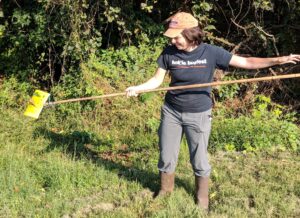
Members-At-Large
Nicole Quinn
University of Florida
Indian River Research and Education Center
Department of Entomology
Ft. Pierce, FL USA
nicole.quinn@ufl.edu
Expertise: Dr. Nicole F. Quinn is an Assistant Professor of Entomology, aiming to control Florida’s most invasive arthropods with classical biological control. Her focus is on species that are both ecologically and economically significant to the state. Dr. Quinn is beginning her arthropod biological control program with Nipaecoccus viridis, also known as the Lebbeck, spherical, or hibiscus mealybug. Quinn’s appointment with UF/IFAS is 80% research and 20% teaching. Dr. Quinn brings ten years of experience to the UF/IFAS biological control effort at the University of Florida/IFAS Indian River Research and Education Center’s Norman C. Hayslip Biological Control Research and Containment Laboratory.
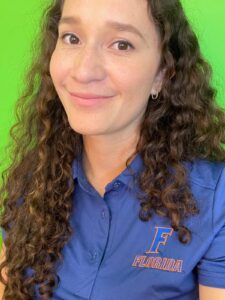 Newsletter Coordinator
Newsletter Coordinator
Sara Salgado Astudillo
Indian River REC
University of Florida
Ft. Pierce, FL, USA
sara.salgadoast@ufl.edu
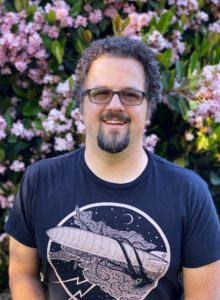 Chris Borkent
Chris Borkent
California Department of Food and Agriculture, Biological Control Program
Sacramento, CA, USA
chris.borkent@cdfa.ca.gov
Expertise: Since joining the CDFA Biological Control Program, my research has involved monitoring, evaluating, and releasing a variety of natural enemies of several target pest taxa across California. This includes the Brown Marmorated Stinkbug, Bagrada Bug, Cereal Leaf Beetle, Olive Psyllid, Olive Fruit Fly, and Squash Bug. I have also been involved with research into noxious weeds and their natural enemies present in the state. I am excited about promoting biological control and discovering new challenges that can be addressed with it, particularly given the continued rise of organic growers.